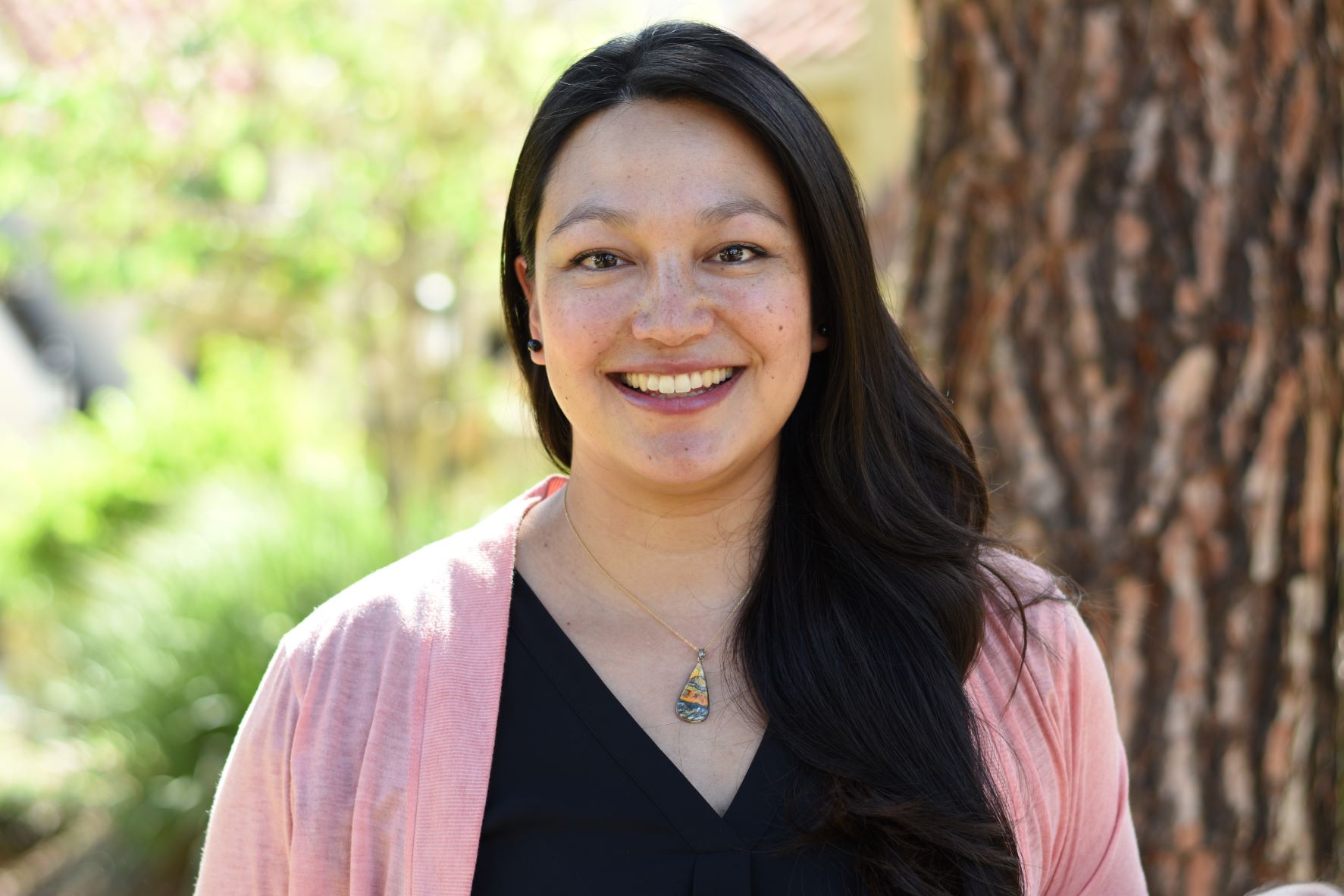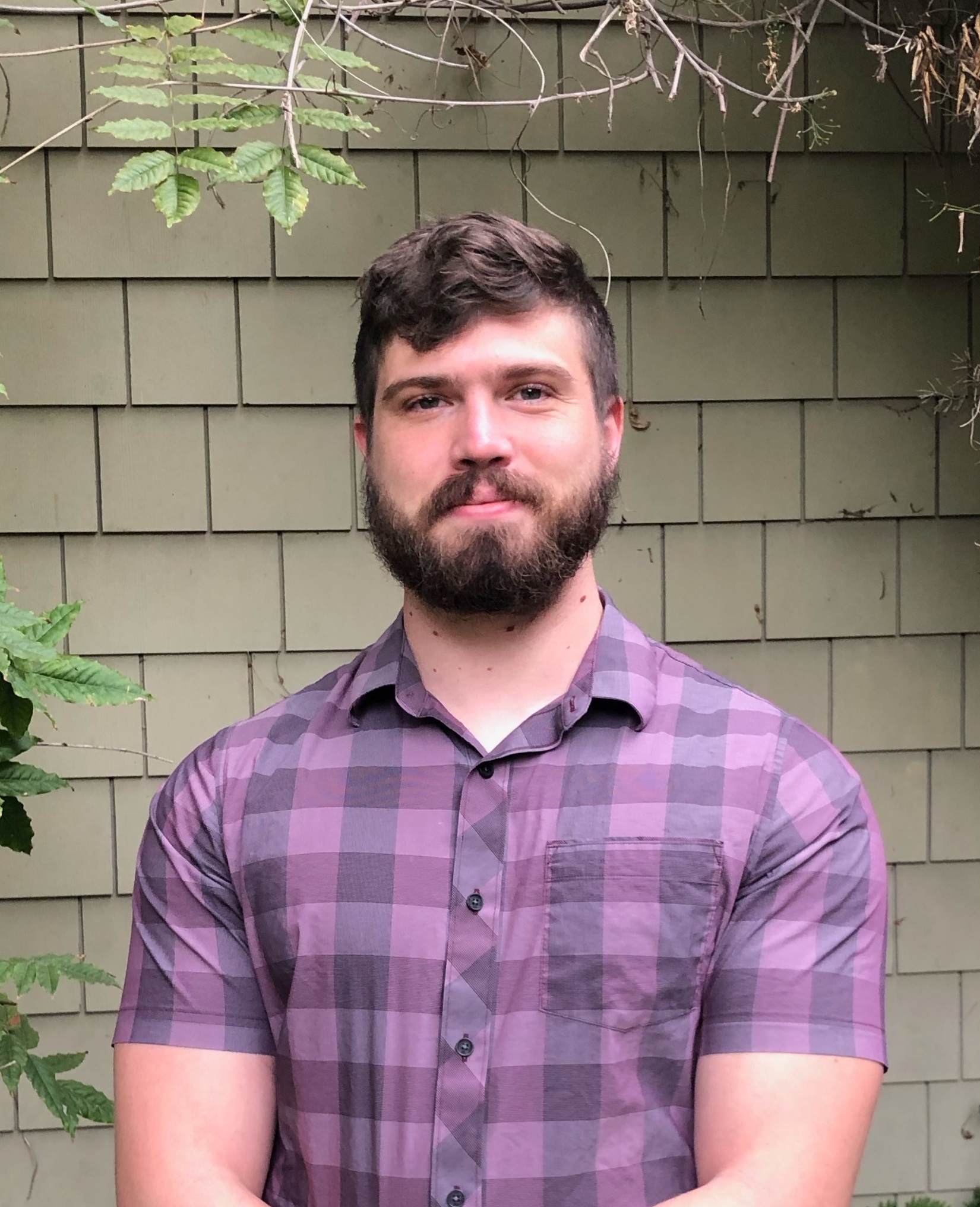Sanford Institute for Empathy and Compassion Research Fellows
Administered by the Center for Research on Empathy and Compassion, the Sanford Research Fellows Program provides financial support for up to two years to fellows under the guidance of a faculty mentor for basic or applied empathy and compassion-related research projects. It is an annual application process that is open to all full-time UC San Diego medical students, graduate students, or postdoctoral scholars. Applicants are required to identify a UC San Diego faculty mentor to develop the research project collaboratively. The program welcomes as mentors all members of the UC San Diego faculty, including adjunct members whose primary affiliation is through the Salk Institute, The Scripps Research Institute, or the Sanford/Burnham/Prebys Institute.
Meet our Fellows
2025-2026 Fellows
Second Year Projects

Fellow: Lauren Ostrowski
Mentor: Timothy Gentner
Research Project: Neural processing of paralinguistic features and emotional content in speech
Understanding others’ emotions through speech is critical for empathy and compassion in social relationships, but the neurobiological bases supporting these abilities remain unknown. Better understanding how emotional knowledge is acquired from speech and guides downstream cognitive processes can advance professional training programs and therapies that promote empathetic, compassionate listening. This project will employ magnetoencephalography (MEG) to study how emotional expression in speech is processed by the brain. We ask how a listener's emotional response to a speaker arises from the perception of paralinguistic acoustic features—such as prosody, speech rate, and voice quality—and explore the neurodynamics facilitating empathetic responses to speech.

Fellow: Gregory Depow
Mentor: Timothy Gentner
Research Project: Wise Empathy in Medical Practice
This project investigates whether training medical practitioners to engage in wise empathy—a strategic regulation of empathy that involves sharing positive patient emotions while responding to negative emotions with compassion—can enhance practitioners’ well-being and reduce burnout. Using a randomized controlled trial with 300 medical practitioners, the study will deliver wise empathy training to one group in week one and to a wait-list control group in week two, with daily diary assessments capturing well-being, burnout, and empathic experiences. The study will employ multilevel models and structural equation modeling to test the intervention’s direct effects and mediation pathways, while also tracking patient outcomes.
First Year Projects

Fellow: Manas Bedmutha
Mentor: Nadir Weibel
Research Project: EmpathIQ: Advancing Empathic and Compassionate Communication in Medical Training with Generative AI
EmpathIQ is a research initiative led by PhD student Manas Bedmutha and Prof. Nadir Weibel that explores how generative AI and social signal processing can enhance empathy training in clinical education. Building on behavioral analyses from real patient-provider interactions, the project aims to develop a digital platform where medical trainees engage with emotionally rich, text-based simulations and receive personalized feedback. By offering a scalable, low-barrier tool for reflective practice and emotionally attuned communication, EmpathIQ supports clinicians in improving patient relationships and advancing compassionate care furthering Sanford Institute’s mission to foster empathy through innovative, evidence-based approaches.

Fellow: Mariel Kristine Micael
Mentor: Justin Trotter
Research Project: Role of Astrocyte-Neuron Communication in Observational Fear Learning and Memory
The ability to vicariously experience another's fear--observational fear (OF)--is a form of emotional contagion that supports social learning. Recent studies implicate the hippocampus, anterior cingulate cortex (ACC) and amygdala in integrating prior fear experiences and social familiarity to guide OF learning and memory. While neuronal circuits involved in OF are partially defined, the role of astrocytes--non-neuronal regulators of synaptic transmission and plasticity--remains unknown. Our central question is: Does astrocyte-neuron communication at tripartite synapses within the hippocampus, ACC, and amygdala contribute to OF learning and memory? We hope this work will provide novel insight into the cellular mechanisms shaping empathetic behavior.

Fellow: Nikki Keisler
Mentor: Monique Smith
Research Project: Anterior Cingulate Encoding of State-matching and Allogrooming in Mice
Empathy deficits are found in disorders such as depression, Autism Spectrum Disorder, and Alzheimer’s Disease, and dysregulation in empathy has had a profound impact on caregivers and healthcare professionals. The goal of this proposal is to identify how neural substrates for two forms of empathy, state-matching and consolation, may diverge. This will contribute to our understanding of the underlying biology of empathy, which is a crucial step in developing targeted therapies to address social dysfunction in neuropsychiatric, neurodevelopmental, and neurodegenerative disorders, as well as improve the lives of healthcare professionals and their patients.
2024-2025 Fellows

Fellow: Lauren Ostrowski
Research Project: Neural processing of paralinguistic features and emotional content in speech

Fellow: Gregory Depow
Research Project: Wise Empathy in Medical Practice
2023-2024 Fellows
Fellow: Satish Jaiswal
Research Project: Developing an Objective Measure of Interoceptive Attention and Evaluating its Sensitivity to change across the Lifespan with Compassion Training
Fellow: Olivia Jurkiewicz
Research Project: Exploring the neurobiological underpinnings of the emotion regulation and empathy relationship
2022-2023 Fellows

Alessandro D'Amico
Research Project: Investigating Racially-Modulated Neuromarkers of Pain Empathy with Electrophysiology
Project Description: Racial biases manifest in various forms from a disproportionately Black prison population in the U.S., to Black patients’ pain being consistently underestimated and symptoms inadequately treated. While education and training may be effective at reducing biases, ameliorating biases by increasing empathy and compassion is another worthy goal. In order to accurately measure changes in empathy, we must first better understand the neural correlates of empathy and how those neural correlates are modulated by racial biases. To do this, we will investigate EEG correlates of perceived pain in others versus self. We hypothesize we’ll be able to isolate the neural correlates of empathic pain by comparing the differences between a participant’s response to their own versus other faces and we further expect to see a racial bias such that White participants’ neural responses to their own face look more like those to White faces than to Black faces. Our research is an important first step toward better understanding the neural correlates of racially-modulated empathy and our findings will allow us to design novel interventions in order to ameliorate racial bias in individuals.

Amy Bellinghausen, MD
Research Project: Development and Implementation of a Mindful Self-Compassion Curriculum to Reduce Burnout in Critical Care Providers
Project Description: Burnout frequently affects critical care workers, due to long work hours and high patient mortality rates. Once burnout develops, providers give less empathetic patient care. My work in the ICU Recovery Clinic – where I see thankful patients who were critically ill but now returning to health and work – has brought fulfillment to myself and others when I bring these stories back to ICU providers. Using these stories as a foundation, I aim to build and implement a compassion curriculum for critical care providers addressing both personal resiliency and moral distress. I will assess burnout pre- and post-intervention using the Maslach Burnout Inventory. The funding provided and proposed course of study will enable me to increase my knowledge of current strategies in empathy and compassion research and establish a foundation as a national leader and funded clinician scientist in critical care-related burnout study and treatment, as well as to refine the burnout curriculum further.

Jon Dean, PhD
Research Project: Brain Mechanisms Supporting Empathy Cultivation and Phantom-limb Based Analgesia by Psilocybin Therapy
Project Description: Psilocybin is a serotonergic psychedelic that induces enhancements in positive affect, social connectedness, and empathy and compassion. Moreover, pilot studies and our own case report have demonstrated that serotonergic psychedelics including psilocybin ameliorate intractable phantom limb pain. Psilocybin decreases default mode network (DMN) activity, circuitry supporting self-referential processing, and increased DMN-sensorimotor cortex connectivity is associated with phantom pain. Existing therapies for phantom limb pain are associated with modulation of classical inhibition of pain. Yet, the psychological and neural mechanisms supporting empathy, compassion, and analgesia by psilocybin are unknown. This trial will test the effects and neural mechanisms supporting psilocybin (versus placebo-niacin) for empathy-cultivation and analgesia in individuals with chronic phantom limb pain.

Zhenggang Zhu, PhD
Research Project: The evolutionary origins of empathy – molecular and neuronal basis of social motivation in rodents
Project Description: Motivation elicited by observation of the actions of a conspecific is prominent in mammals and is an evolutionarily conserved proxy for human empathy and compassion. However, the relationship between how the brain encodes self-motivated behaviors versus social motivation is unclear. For example, are there distinct cell types in the brain for self-motivation and observation-evoked empathy, or is there a shared circuitry encoding motivated-behavioral states that reflect convergence points between self-motivated and social behaviors? This question can be investigated in the mouse hypothalamus, which has diverse cell types and is a key integratory site for self-motivation (e.g., feeding and drinking), social interaction, and encoding others' motivation. Our hypothesis is that molecularly defined hypothalamic 'empathy neurons' act as a bridge for integrating social information and interacting with the self-motivation neurons to trigger social empathy. Our project will test the hypothesis by modeling empathy behaviors, functionally identifying empathy neurons via volumetric two-photon calcium imaging, and delineating their molecular identity.

Melissa Karnaze Hedayati, PhD
Research Project: Assessment of Compassion Cultivation Training
Project Description: This qualitative evaluation study will investigate how trainees and professionals in health fields perceive facilitators and barriers to implementing Compassion Cultivation Training (CCT; Compassion Institute) in their daily lives. My main research questions are: (1) How do participants think about facilitators of, and barriers to, compassion prior to, and after completing CCT?; (2) How do they view their ability to implement CCT into daily life?; (3) How do they perceive how it feels to receive compassion, as well as show compassion to others and oneself?; and (4) How do they define compassion and thus describe situations in which compassion occurs?
2021-2022 Fellows
Fellow: Erik Viirre
Research Project: Enhancing neurobehavioral Effects if Compassion Training Using Immersive Visual Imagery
Fellow: Federica Klaus
Research Project: Stay-at-home Wellness Ecological Momentary Assessment in Late Life (StayWELL) Study
Fellow: Anne White
Research Project: Compassion Disparities in Emergency Care: A Mixed Methods Pilot Study
2020-2021 Fellows

Dr. Pragathi Balasubramani
Research Project: Training the Neural Basis of Empathic Training the Neural Basis of Empathic Awareness in Physician Trainees Leveraging Real-time Virtual Reality

Jacob Garrett
Research Project: Intracranial Empathy Research in Huma
Drs. Nicole La Grange & Laleh Quinn
Research Project: An established paradigm for defining the physiological roots of empathy and compassion -- what can rodents teach us?
All programs and initiatives coordinated by the Sanford Institute for Empathy and Compassion are designed and implemented in full compliance with Proposition 209 and the University of California Anti-Discrimination Policy.
In accordance with applicable Federal and State law and University policy, the University of California does not discriminate, or grant preferences, on the basis of race, color, national origin, religion, sex, disability, and/or other protected categories.
More information about Proposition 209 can be found here. More information about the University of California Anti-Discrimination Policy can be found here.

